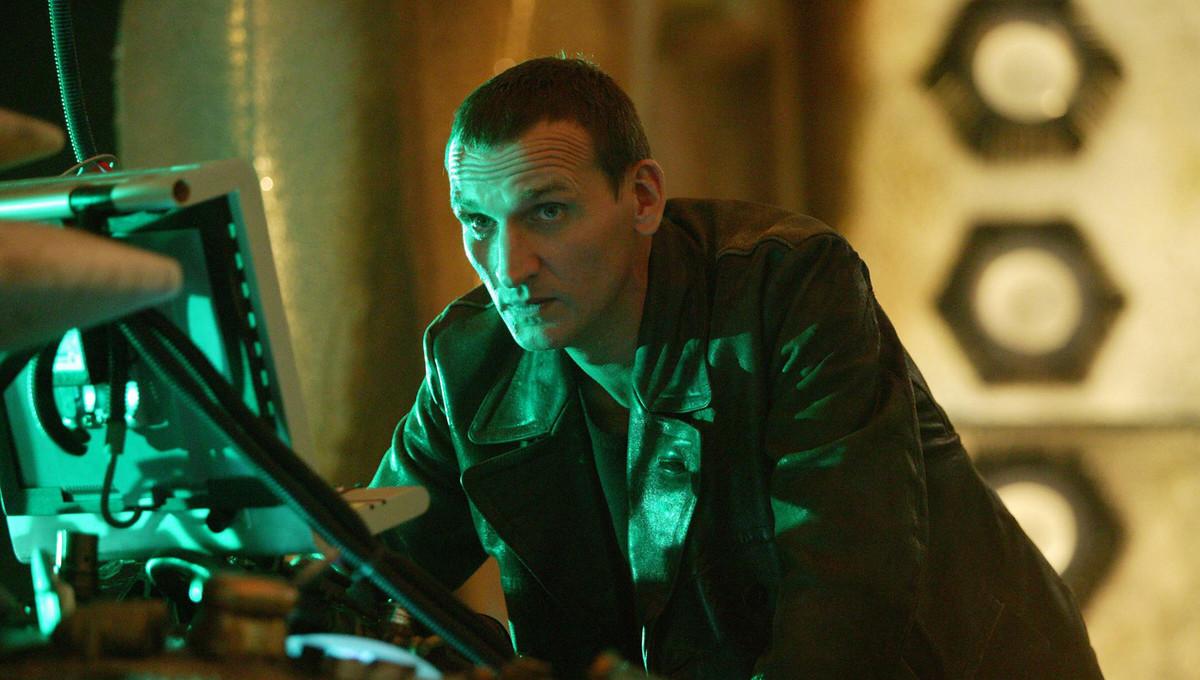Recently, Christopher Eccleston went on a bit of a rant about how he absolutely despised working on two films, “G.I. Joe: The Rise of Cobra” and “Thor: The Dark World.” He went so far as saying that he wanted to cut his throat every day. However, towards the end of that interview, Eccleston mentioned how his work on “Doctor Who” almost destroyed his career. In a new interview with Radio Times, he goes a bit further in explaining what exactly happened that led to his exit from the massive TV series.
“My relationship with my three immediate superiors—the showrunner, the producer, and co-producer—broke down irreparably during the first block of filming and it never recovered. They lost trust in me, and I lost faith and trust and belief in them,” said Eccleston.
While he isn’t afraid of naming names, Eccleston also puts some of the blame squarely on himself:
“Some of my anger about the situation came from my own insecurity. They employed somebody [as the Doctor] who was not a natural light comedian. Billie [Piper], who we know was and is brilliant, was very, very nervous and very, very inexperienced. So, you had that, and then you had me. Very, very experienced, possibly the most experienced on it, but out of my comfort zone.”
It sounds like the actor was concerned how the people in control over the show just set him up for failure. However, it also sounds like perhaps Eccleston should have done more research into the role before deciding to sign up for the show. But you know, hindsight and all that.
With that being said, it’s been over a decade since Eccleston starred as the Doctor, so why speak up now? According to the actor, it was out of a deal he made with then-“Doctor Who” showrunner, Russell T Davies. “When I left, I gave my word to Russell T Davies that I wouldn’t do anything to damage the show. But they did things to damage me. I didn’t criticize anybody,” he continued.
It definitely sounds like there’s no love lost between the star and Davies. In fact, in the interview he explains that he believes that Davies knew about the drama behind the scenes, saying, “If you’re the showrunner, you know everything. That’s your job.”
Eccleston ends the discussion by saying he “never will have” a working relationship with Davies again.






That’s very sad. He was wonderful as the character and Russel T Davies wrote it brilliantly. Bummer to hear this.
Prior to Eccleston’s recent statements, Whovians have pieced together what happened since 2005. Keith Boak shot the first production block in London and Cardiff (Rose, Aliens of London, World War Three) and – on a production level – those episodes were apparently a huge mess. It’s difficult to say what definitely happened because Davies hasn’t gone into huge detail as to what exactly occurred and Boak hasn’t gone on record about it, to be best of my knowledge, but Eccleston suggests that extras were abused and crew treated badly by an unnamed director (Eccleston made a huge point at the press launch for the 2005 series of praising the whole production staff not just above the line players).
Boak could have been let down by the BBC and production staff and made the fall guy for delays as nothing quite like Doctor Who had been attempted by the BBC in the 2000s. It’s possible. Davies mentioned once that Eccleston and Piper were working in Cardiff on one day then took a train to London to shoot later that day and the first scene hadn’t been set up yet, so there was nothing to film. The first episode also came in short (which is why each episode has a preview of the next one) and the Slitheen two-parter is probably the nadir of that season.
Eccleston was used to working with top-level directors in television (Michael Winterbottom directed the first ‘Cracker’ story), so it seemed baffling to him that the BBC and Davies would launch a series with a no-name director that wasn’t that nice a guy, apparently: “It’s very important on a first series that you make a very informed and intelligent choice, even if it means breaking the budget. About getting the first director who is going to set the tone for the season, for the way the actors relate and that did not happen. Disaster.” Davies selected Boak after Geoffrey Sax (whose direction was not the problem on the 1996 Fox film, has done quality TV like Tipping the Velvet and Clocking Off and had worked with Eccleston on Othello) declined, yet it still seems as if there must have been many other better choices at the time, like Joe Ahearne (who got along swimmingly with the actor) .
This is not a problem that the series has faced again. James Hawes directed much of season 2, including Tennant’s first episode; Adam Smith handled Smith’s first production block; and Ben Wheatley began Capaldi’s era. (According to Moffat, it’s usually the second block that offers issues). I was surprised that Chibnall selected Jamie Childs to begin Jodie Whitaker’s era and not a bigger or more experienced director, but the infrastructure that wasn’t there at the BBC in 2005 is now firmly entrenched to ensure that the new season/era is a success and clearly Childs impressed Chibnall with his ideas and previous work to warrant such trust.